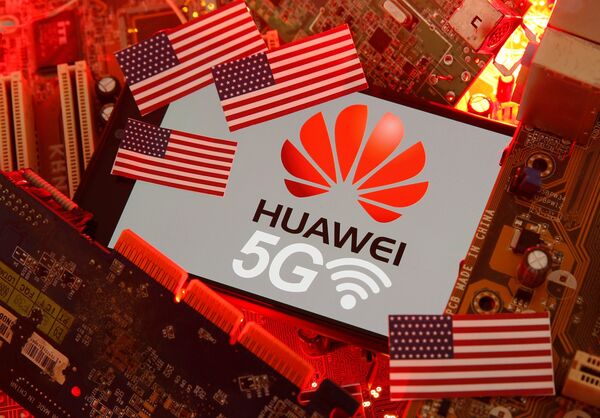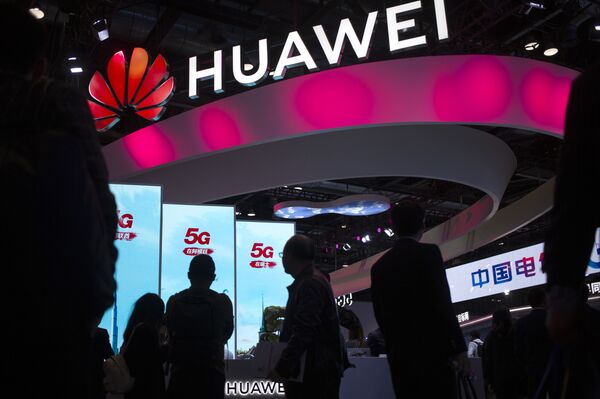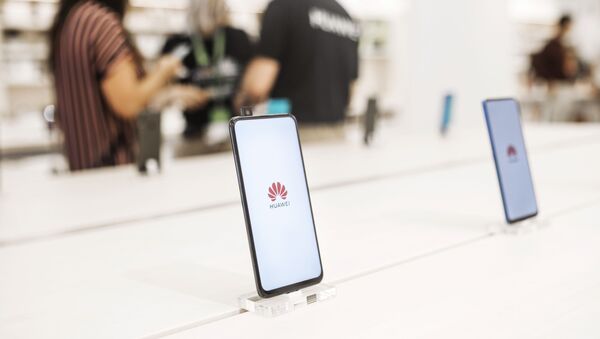Washington has declared its refusal to do business with Huawei and convinces its allies to do the same, but in practice, even the US cannot give up on the Chinese equipment. The blacklisting of Huawei and other companies related to the Chinese tech giant by the US Department of Commerce means that US partners may not supply any components or software to the company without special permission from the department.
However, to ensure the smooth refusal of Chinese equipment without American companies being shocked by the sudden costs associated with restructuring their supply chains, the US Department of Commerce introduced a temporary 45-day license in May, which can be repeatedly renewed later.
This may be happening under pressure from the industrial lobby as Huawei was one of the largest customers for US companies: in 2018, it bought products from US suppliers for $11 billion.

On the other hand, many US companies can easily bypass the DOC ban. Under US legislation, only products that have 25% of their components manufactured in the United States are banned. The Commerce Department and Trump's administration are currently discussing the possibility of reducing this threshold to 10%. American companies are opposing it. Even the Pentagon has long objected to these measures.
They believed that such a severe ban would simply lead China to purchase components from other countries' suppliers, and American manufacturers would lose their most important market. Nevertheless, the Pentagon has so far stopped objecting to the measures proposed by the DOC.
In practice, the US Department of Commerce, on the one hand, calls for stricter regulations on the supply of products to Huawei, and on the other, regularly renews temporary licenses. The US authorities are facing a difficult task. They don't want to overdo the limitations so as to prevent undue economic damage to their own companies, a professor at the Institute of International Relations of the Renmin University of China, Shi Yinhong told Sputnik.
"At present, several high-tech companies, including Apple, are in dialogue with US authorities. They say that if the restrictions are too severe, especially when it comes to purchasing Huawei’s 5G equipment, as well as supplying Huawei with its products, they will incur great damage and lose a significant share of their revenues. This is a very important reason why the US Department of Commerce is still renewing licenses and not enforcing broader bans", he says.
Huawei equipment is installed in American telecommunication networks. Small telecom operators, which provide services in rural sparsely populated areas, especially depend on it.
According to the US Rural Wireless Association, if they completely abandon Huawei equipment, rural operators would need from $800 million to $1 billion to rebuild infrastructure, and it would take about two years.

The situation in other countries’ telecommunications sectors is similar, including the closest allies of the United States. In the UK, for example, Huawei's share in existing previous generation networks already exceeds 40%. Giving up Chinese equipment will cost them too much. That is why many countries are not willing to support the US, Professor Shi Yinhong says.
"The US decided to ban Huawei equipment for 5G network construction. They also cannot allow their allies to license the use of this equipment. But some countries, including the UK, Germany, France, are proceeding from practical considerations of economic benefit and do not follow the US in imposing a total ban. Therefore, the US has eased its demands. They want Huawei equipment not to be used at least in the core network", the expert noted.
The UK and the EU as a whole have not banned Huawei equipment despite calls from the US. London has decided that Chinese equipment can be used in the construction of 5G radio access networks, but the share of one manufacturer, cannot exceed 35%. The EU has generally limited itself to vague formulations: companies from countries with undemocratic regimes will not be allowed to supply the most vulnerable components of the network core. However, no specific countries or companies were listed.
Therefore, Washington has not yet managed to form an anti-China alliance around itself. At the recent Munich Security Conference, senior US officials, including US State Secretary Mike Pompeo, tried to inspire the public with bold statements such as "the Western model won" and called for a united effort against Chinese threats. But Americans did not get much support from their European counterparts.
The Chairman of the Munich Conference, Ambassador Wolfgang Ischinger, said that China deserves support, sympathy and encouragement. Meanwhile, German President Steinmeier said that the US under the current administration rejects the very essence of the international community.
On a whole, Munich's mood could be described as follows: until US actions are no longer at odds with their words, all Washington’s calls for joint action by will be perceived in Europe with extreme restraint.



